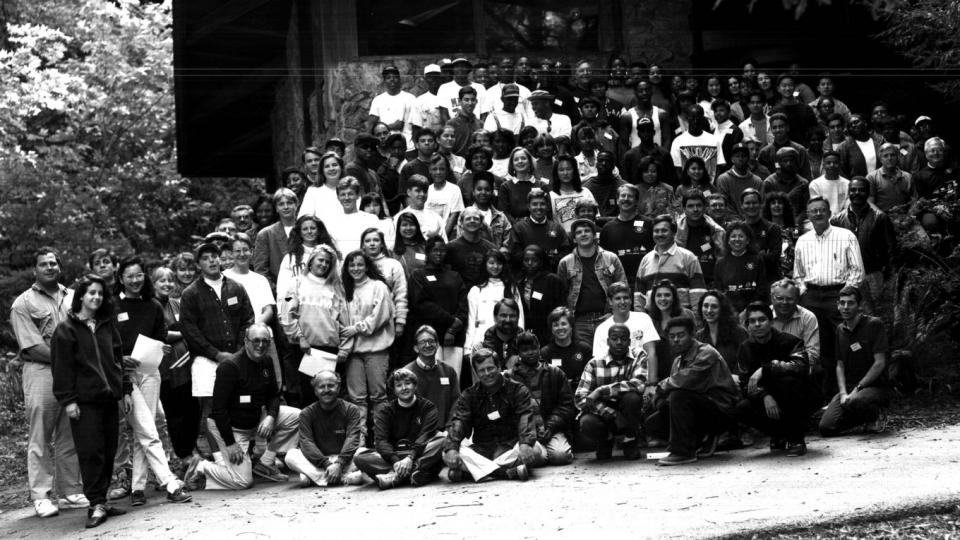SCHOLARSHIP RECIPIENT REFLECTS ON HIS JOURNEY TO ROTARY
This story originally appeared in the September 2012 issue of The Rotarian.
My father moved us from Vietnam when I was a child to provide us with more than what we’d had under the communist regime. We ended up in a ghetto in Oakland, California, USA. I went to Fremont High School, one of the worst schools in a neighborhood plagued by violence, poverty, and high dropout rates.

Our house was on a busy street, and every night we heard gunshots.
The spring of my junior year, a group of Rotarians visited my class. They told us about the Rotary Club of Oakland’s Enterprise Institute, a three-day camp that allows students to develop and test their business skills. Spending time in the Santa Cruz Mountains, creating a business plan with my peers, didn’t appeal to me so much as escaping the projects for a few days. In my world, the only businesses I saw were funeral homes, liquor stores, and drug dealers.
The Enterprise Institute exposed me to a new reality. I met teenagers who talked about Plato and Shakespeare, not drive-by shootings and AK-47s. It was at camp that I heard the word “entrepreneur”for the first time. Surrounded by high school students from schools that were far superior to my own, I learned just how little I knew. As we considered case studies and came up with our own business plans, I also saw a future that didn’t involve assault rifles and prison cells. These kids talked about going to college and starting their own companies, and I realized I wanted the same things. Coming from the streets, I knew I was at a disadvantage and would have to work even harder to achieve the same goals. That was one of the most important lessons I took away from the Enterprise Institute–not a business outline, but a sense of ambition and self-motivation.
LANDING ON FIRM GROUND
We didn’t have much money, so I applied for every college scholarship I could. I filled out 20 applications and received 19 rejections because I was not a U.S. citizen. Only one scholarship program accepted me: the Rotary Club of Oakland’s. The Rotarians met with me and my family and listened to what I had been through and where I wanted to go. I know they had many applicants, and when they awarded me the $5,000 scholarship, it proved they believed in me. The scholarship, along with financial aid, allowed me to go to college.
At the University of California, Davis, I used the scholarship money to pay for rent and books. The first three years I was in school, the scholarship meant that I didn’t have to work and could concentrate solely on studying. Whenever I would talk to my Oakland club counselor, Terry Turner, he would always ask how I was doing, and I would tell him truthfully that I was struggling. Fremont High School had not prepared me for UC Davis. Terry offered me advice, and I listened to it. I started at Davis at the same time as three other Fremont High School graduates. By my second semester, I was the only one left. The Enterprise Institute had jump-started my future. The Rotary scholarship kept it in motion.
I spent several years working for a series of small companies before striking out on my own with Novateck PC in 2004. As soon as I opened my business, I joined the Oakland club. Its members became some of my first clients. Novateck has grown since then and now has three employees. My family has also grown; I now have a wife and two young daughters.
Last year I took my wife and oldest daughter to Vietnam. The little fishing village I left as a child 30 years ago is now a bustling metropolis. My childhood home in Oakland has also morphed into something else; the basketball court where I used to play has been replaced with apartment complexes. The Rotary Club of Oakland’s Enterprise Institute is one of the things that remain unchanged. Now in its 30th year, the institute continues to take dozens of high school juniors to the mountains and teach them how to make their own future in the business world. I have helped with the institute for the last seven years and am now co-chair of the committee that runs the whole thing. I know that the camp experience will help other teenagers change their way of thinking and give them hope for a better future. That’s what it did for me.